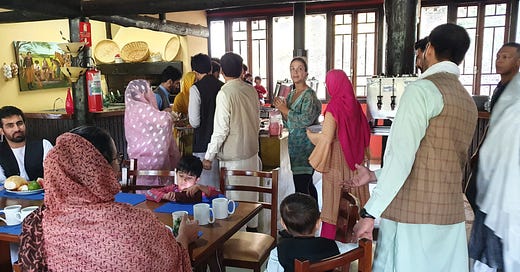Last month 53 Afghans arrived at a camp 60 miles outside Sao Paulo in Brazil in time to celebrate Iftar, the traditional Muslim meal ending Ramadan. Most are Hazara Muslims who worked for a U.S.-based NGO and came under threats from the now-ruling Taliban. At least 100 more from Afghanistan are expected to join them. Their resettlement is a first for Br…
Keep reading with a 7-day free trial
Subscribe to GlobeTrot to keep reading this post and get 7 days of free access to the full post archives.


